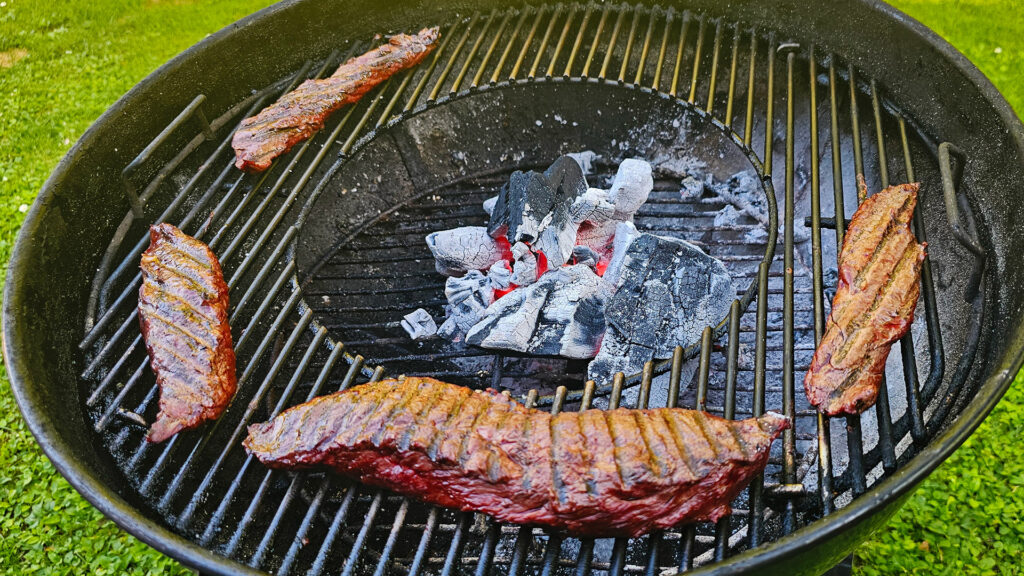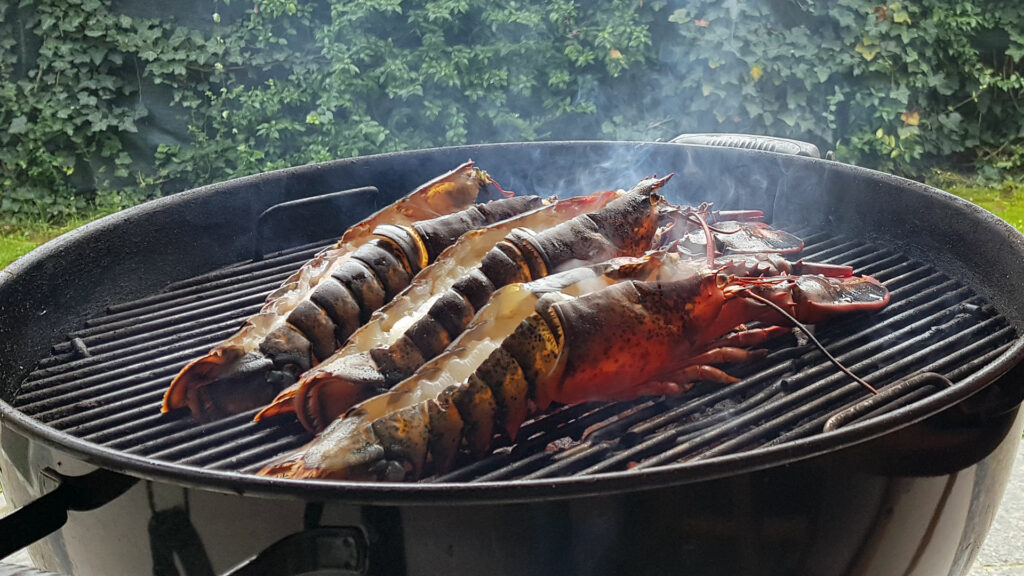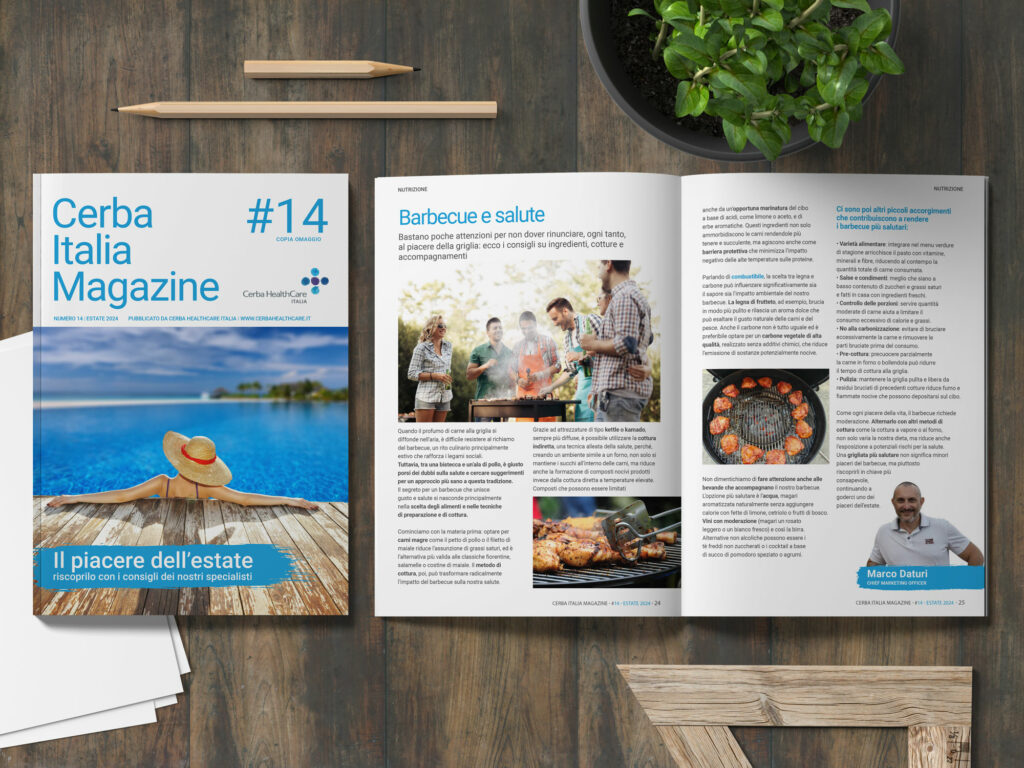Snippet
With a few precautions, you can savor the joy of barbecuing healthily. Opt for lean meats like chicken breast or pork tenderloin to reduce saturated fats. Use indirect cooking methods with kettle or kamado grills to retain juices and minimize harmful compounds. Marinades with acids and herbs can protect meats from high-temperature damage. Choose clean-burning wood or additive-free charcoal to enhance flavor and reduce harmful emissions. Incorporate seasonal vegetables, use low-sugar sauces, and control portions. Avoid charring and pre-cook meats to reduce grilling time. Keep your grill clean to prevent residue buildup. Enjoy barbecuing in moderation for a healthier, tastier experience.

It only takes a few precautions to occasionally enjoy the pleasure of grilling: here are some tips on ingredients, cooking methods, and accompaniments.
When the aroma of grilled meat fills the air, it’s hard to resist the call of the barbecue, a primarily summer culinary ritual that strengthens social bonds. However, between a steak and a chicken wing, it’s reasonable to have health concerns and seek tips for a healthier approach to this tradition.
The secret to a barbecue that combines taste and health lies mainly in the choice of foods and preparation and cooking techniques.
Starting with the raw materials: opting for lean meats such as chicken breast or pork tenderloin reduces the intake of saturated fats and is a valid alternative to the classic Florentine steaks, sausages, or pork ribs. The cooking method can then drastically transform the barbecue’s impact on our health.

Thanks to increasingly popular kettle or kamado-type equipment, indirect cooking can be used, a health-friendly technique. This method creates an oven-like environment that not only retains the juices within the meats but also reduces the formation of harmful compounds produced by direct cooking at high temperatures.
These compounds can also be limited by an appropriate food marinade based on acids like lemon or vinegar and aromatic herbs. These ingredients not only soften the meats, making them more tender and succulent but also act as a protective barrier that minimizes the negative impact of high temperatures on proteins.
Speaking of fuel, the choice between wood and charcoal can significantly influence both the flavor and the environmental impact of our barbecue. Orchard wood, for example, burns cleaner and releases a sweet aroma that can enhance the natural taste of meats and fish. Not all charcoal is the same either; it’s better to opt for high-quality vegetable charcoal made without chemical additives, which reduces the emission of potentially harmful substances.
Let’s not forget to pay attention to the beverages that accompany our barbecue. The healthiest option is water, perhaps naturally flavored without adding calories with slices of lemon, cucumber, or berries. Wine in moderation (maybe a light rosé or a fresh white) and beer are also good options. Non-alcoholic alternatives can be unsweetened iced teas or cocktails based on spiced tomato juice or citrus fruits.

Precautions for healthier barbecues
There are also other small precautions that contribute to healthier barbecues:
- Food variety: integrating seasonal vegetables into the menu enriches the meal with vitamins, minerals, and fiber, while simultaneously reducing the total amount of meat consumed.
- Sauces and condiments: it’s better if they are low in sugars and saturated fats and homemade with fresh ingredients.
- Portion control: serving moderate amounts of meat helps limit excessive calorie and fat consumption.
- Avoiding charring: avoid excessively burning the meat and remove charred parts before consumption.
- Pre-cooking: partially pre-cooking the meat in the oven or boiling it can reduce grilling time.
- Cleaning: keeping the grill clean and free of burnt residues from previous cookouts reduces harmful smoke and flare-ups that can deposit on the food.
Like any pleasure in life, barbecuing requires moderation. Alternating it with other cooking methods such as steaming or baking not only varies our diet but also reduces exposure to potential health risks. A healthier barbecue doesn’t mean fewer pleasures of grilling but rather rediscovering them in a more conscious way, continuing to enjoy one of the joys of summer.
Article published in Cerba HealthCare Italia Magazine No. 14

